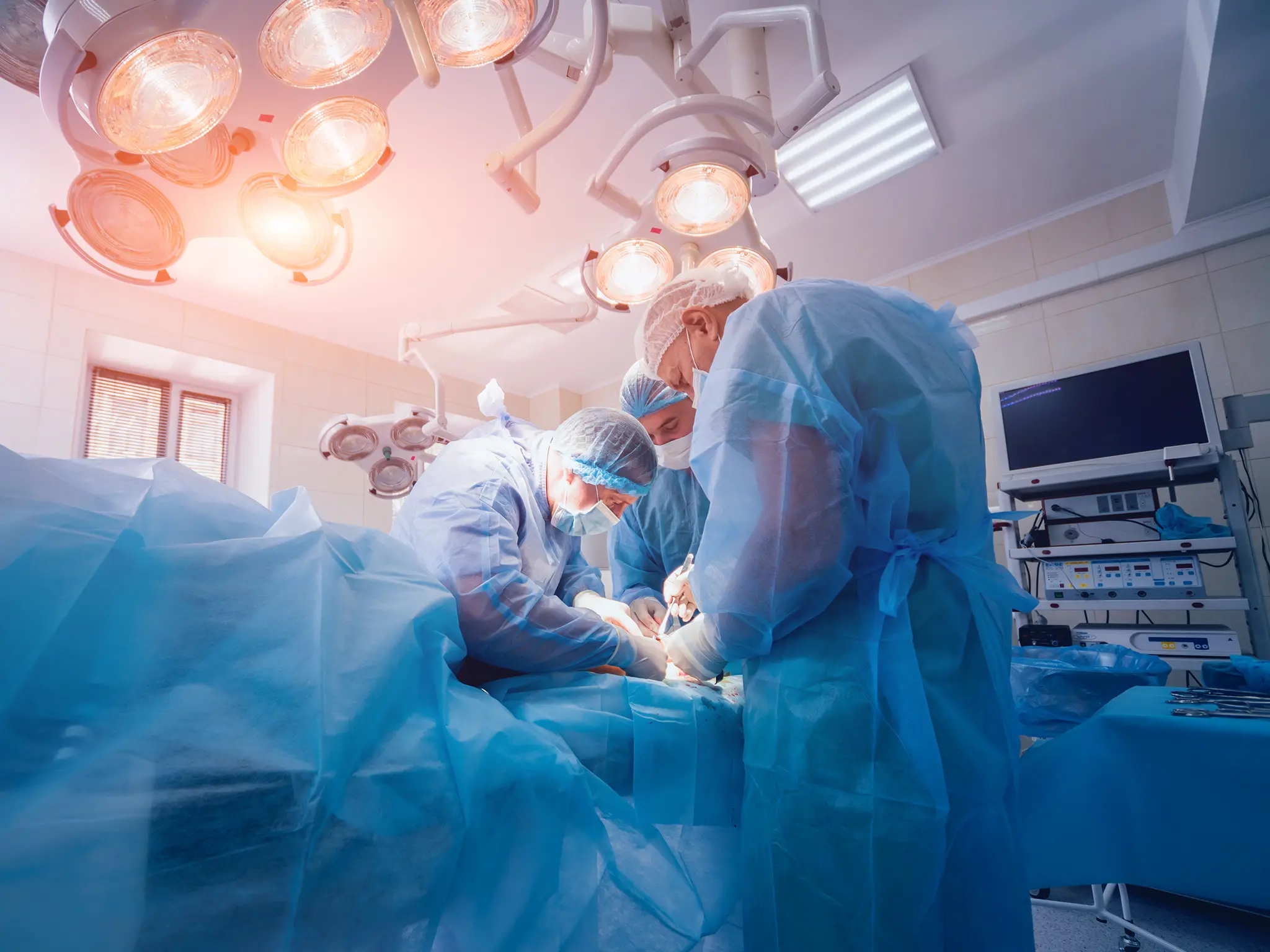Doctor for Disc Prolapse treatment
A disc prolapse, also known as a herniated disc or slipped disc, is a medical condition that involves the intervertebral discs in the spine. The spine is made up of vertebrae, and between each pair of vertebrae, there are intervertebral discs that act as cushions or shock absorbers..
A disc prolapse occurs when the soft, gel-like center (nucleus pulposus) of a disc pushes through a tear or weakness in the outer ring (annulus fibrosus) and extends beyond its normal position. This can lead to compression or irritation of nearby spinal nerves, causing pain, numbness, tingling, or weakness in the affected area. Disc prolapses most commonly occur in the lower back (lumbar spine) or the neck (cervical spine).
It's crucial to seek medical attention if you or a loved one you know experiences a Disc Prolapse. Dr. Shri Ram Gupta is a known neurosurgeon in Lucknow, Uttar Pradesh who will give you timely and appropriate medical care and assess the extent of the injury and ensure proper treatment to minimize potential complications.
What are the treatment options available for disc prolapse?
The treatment options for disc prolapse (herniated disc) depend on the severity of symptoms and the specific circumstances of each individual. Here are some common approaches:. If you suspect a disc prolapse or experience symptoms after a traumatic event, seek medical attention promptly from the best neurosurgeon in Lucknow, Dr.Shri Ram Gupta.Here are treatment options available for disc prolapse:
Rest
Giving the affected area time to heal and avoiding activities that worsen symptoms.
Pain medication
This is often the initial imaging test used to identify skull fractures, brain bleeds, or other structural abnormalities
Physical therapy
TTargeted exercises and stretches can improve flexibility, strengthen supportive muscles, and alleviate pressure on the affected nerves.
Surgery
When conservative measures fail to provide relief or in cases of severe symptoms, surgical intervention may be considered. Common surgical procedures for disc prolapse include discectomy (removal of the herniated portion of the disc) or spinal fusion.
Schedule your initial consultation for disc prolapse treatment at RamJanki Neuro Care
If you or someone you know is exhibiting symptoms suggestive of a disc prolapse, seeking prompt medical attention is essential for an accurate diagnosis and appropriate treatment plan. Contact us today to schedule a consultation with Dr. Shri Ram Gupta and take the first step towards a healthier, pain-free life. Your well-being is our priority.
